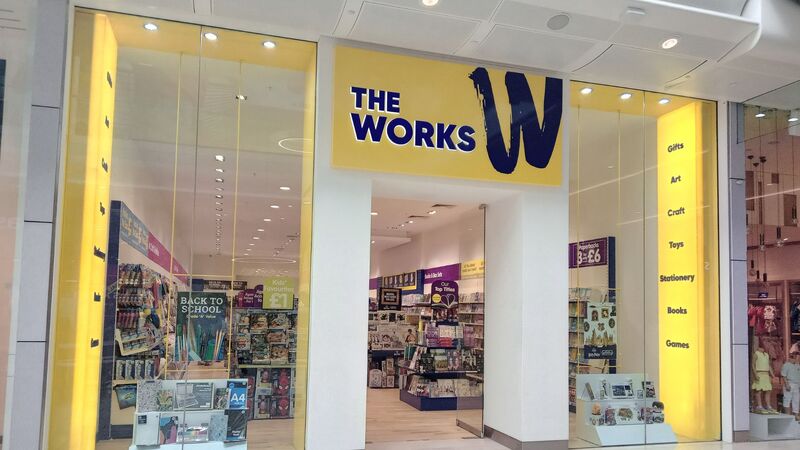You are viewing your 1 free article this month. Login to read more articles.
The library dividend
For many of us, public libraries are a consistent feature in the landscape of our lives. Local libraries offer refuge, reading, a place to connect, activities for users of all ages – all guided by the diligent hand of the professional librarian.
Yet libraries are never still. They are constantly evolving to meet the ever-changing needs of their communities.
Never has this been more apparent than in the last 12 months. New registrations for library cards increased by 600% in some areas in the weeks following the first ‘lockdown’ as people turned to e-reading to keep them entertained.
Libraries have pivoted to support the NHS and other local services – in Newcastle, for example, where the library 3D-printed tens of thousands of items of PPE.
Yet despite their proven impact on the lives of local people, many libraries face an uncertain future.
The financing of local library services today is very much a matter for local Government. Since 2010, central Government policy has been to withdraw ‘central grants’ to local areas, encouraging Councils to make up the difference from Council Tax and other local revenues such as business rates. This means that the quality of your local library service is inextricably linked to the financial fortunes of your Council.
In some places, this works well. In Kent, for example, a combination of ‘Community Infrastructure Levy’ and ‘Section 106 funds’ (a mechanism allowing property developers to invest in local infrastructure) has enabled the development of several new facilities including the innovative History and Library Centre in Maidstone.
The downside is that if you live in an area where the Council has not managed its finances effectively – such as Croydon or Northamptonshire – or one characterised by low incomes and multiple indices of deprivation your access to a quality library service can be severely impaired.
The result of the total devolution of public library provision to local councils, ultimately, is a generation of ‘library haves and have-nots’.
COVID-19 has resulted in a ‘funding bounce’ for local authorities across the UK as they benefit from the Treasury’s largesse to strengthen pandemic response. However, the reality is that we have now reached a point whereby Councils can no longer afford to deliver on their long-term statutory duties beyond the fundamentals of adult social care and child protection.
Unless we can find a better way to pay for libraries, chances are we will see hundreds more closures in the next two to three years as we address the cost of public borrowing during the pandemic.
The answer lies in innovation. Not just in terms of the services we deliver, but also in terms of how we can better use taxpayer’s money and other sources to fund the high-quality libraries that everyone deserves.
On the delivery side, public libraries have transformed themselves over the past two decades. The library of today is still rooted in reading, literacy and learning but has expanded on this proposition to include a broader range of activities designed to enable people to live healthier, happier lives.
The modern library service is buzzing with technology, activity and creative energy. Through the pandemic, many libraries have significantly expanded their digital engagement – bringing popular activities such as ‘Baby Bounce’ and ‘Rhymetime’ to new audiences.
But this new approach still rests on the same tired funding model. It is to address this that CILIP has been funded by the Arts Council England to lead a new Independent Review into Public Library Financing.
The Review will explore innovative models for the financing of public libraries while still retaining their core identity as public services. We know that local services commonly struggle to secure more than 10% of turnover from commercial activity, so if we want libraries to be sustainable in the long-term, we need to think differently about public investment.
Examples of approaches we would like to consider include a more explicit connection between quality local library services and local healthcare. We know already that library usage delivers savings for the NHS, and as we look ahead to life post-COVID there may be opportunities to bring library provision into the same funding streams as preventative healthcare.
We will also be looking at the local library as an extension of formal education. We know that for many children and young people, the library is a vital workspace, providing safe and supported access to technology and reading materials. We also know that the library is a fantastic platform for post-16 and adult education.
We will explore the virtuous connection between attracting business to invest in an areas and the role of the local library in creating a strong future workforce. We know, for example, that in cities like Birmingham the strength of the local library service has a meaningful impact on educational attainment and skills – in turn helping to support new and existing enterprises.
Our ultimate ambition is to transform the understanding of the ‘return on investment’ from local library funding. Funding libraries is an investment – in ourselves, in our children, in the creative, cultural and economic life of our communities.
If we truly want to ‘build back better’, then we ought to be building libraries everywhere. Our ambition for the Independent Review is to deliver recommendations which truly transform our thinking about funding libraries as the best investment we could make into all our futures.
Nick Poole is chief executive officer (CEO) of CILIP, the professional association for the library and information profession in the UK and a member of the board of Wikimedia UK. He is also the current Chair of BIC Ltd, the book industry supply chain organisation. Find out more about CILIP’s work and how you can support it here: https://www.cilip.org.uk/page/Donate















